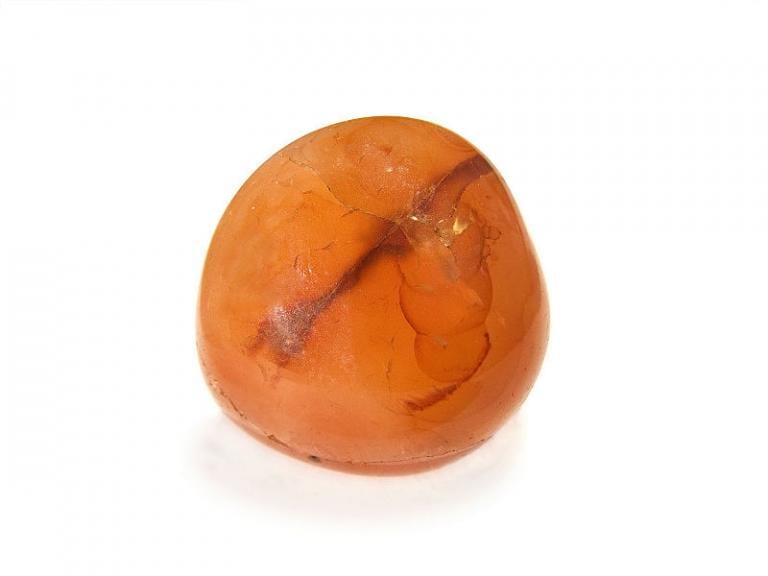I’ll be straight-up honest with you: since childhood the Otherworld and its denizens, the Otherfolk, have pretty much scared the ever-lovin’ snot out of me.
My reaction goes well beyond “healthy respect”; it’s more of an avoid-at-all-costs kind of thing, which—when I step outside of myself to try to put my knee-jerk response into some sort of context—seems to be somewhat at odds with what one might expect from a Hekatean Witch. After all, I work with the Queen of the Witches, which is a relationship that comes with a significant amount of respect on my part. So why is it that Hekate doesn’t scare me brainless but the Fae make me want to run and hide?

I was visited by the Fae only once as a child, during a particularly bleak and stressful time. To this day I remember with crystal clarity crossing an invisible cobwebby netting strung across a sunny field and stepping into a darkly lurid landscape rioting with weirdly twisted under- and overgrowth.
My imp-like guide and I followed the chiming tones that came from beyond the dense forest, and we perched on a low branch to watch the Fair Folk in a clearing as they danced and sang in a circle. Time seemed to elongate; there was only the moment, and eventually, the next.
My guide turned to me and said, “You cannot stay here.” I was heartbroken as he led me back to the partition between the worlds. I stood at the edge of the veil, looking out on the still sunny field in my own world, lingering as long as I could in the Otherworld until I was pushed out. And I’ve never been able to return since.
But I have never forgotten the dream, even now, more than half a century later.
Over the years, that admonition I heard with a child’s ears and a child’s understanding—“You cannot stay here”—seemed to morph into “You aren’t welcome here” which eventually gained the added subtext of “We don’t like you.”

It wasn’t until recently that I decided to intentionally revisit my relationship (or lack of it) with the Otherfolk and realized that I may have larded the meaning I took from that experience with an unhelpful dollop of projection. Like many of us who identify as pagans, heathens and/or witches, I’ve known for practically all my life that I don’t fit in with the overculture. Generally, most of us are more comfortable operating in one or more of several sub-cultures.
Once I was able to strip away my own add-ons to the original message from my long-ago guide, I was able to realize that the almost autonomic shut-down I had always experienced when it came to the Otherworld was the undeveloped response of a child, not the more sophisticated response of an adult.
Think of it in terms of teaching a toddler about “hot” as we seek to protect them from injury. We may turn on a burner on the stove and draw their hand near-ish toward the heat. Hot! Hot! Danger! No! I realized that’s where my understanding of my guide’s message had been inadvertently stuck.
So, when I attended Byron Ballard’s workshop on connecting with land spirits—the Good Neighbors, as she knows them—at Florida Pagan Gathering, I was determined to push through my fear-based avoidance. I shared my long-ago encounter and my subsequent fear. She shared her insights and wisdom about taking first steps to initiate a relationship with the lesser Fae.

Back at home, I made my offerings, placing a cellophane-sealed, luridly colored sweet loaded with who knows what kind of chemicals and dyes at the base of the oak behind my altar* and leaving some strong coffee in a shot glass on my kitchen counter.
I did this simply to show friendliness and kindness, refilling the shot glass daily and checking on the wrapped candy every few days, unsurprised to see it still where I had placed it.
I thought I was doing this with no expectations, but it turns out there’s a pretty significant difference between “no expectations” and “expecting nothing”.
I lost a few things that were precious to me in this last cross-country move. A stone bear fetish that had literally appeared on the kitchen counter 30 years ago. We’d always placed him facing North in every house we moved to since his appearance. I’m sure he’s here, but four months of searching on and off haven’t turned him up.
A palm-sized hunk of carnelian that used to belong to my grandfather. It was a literal touchstone to my past; when I held it I knew I was holding something his own skin had lingered upon. In a way it was like holding his hand. Over the years it’s stayed on my writing desk, ready to be cradled as I stare off into the middle distance trying to chase down a thought sequence, or it’s been carried with me as a talisman. Gone now, gone . . . somewhere.

And, most perplexing of all, one large zipped plastic bag of recipes. It was one of three, and it doesn’t sound like much, but it was the group of recipes that I used most often—the heritage recipes pulled out at holidays, the ones written in my sister’s hand, the ones that, like the carnelian stone, were a tangible connection to past celebrations and relationships. They were a living link. Gone. Yes, they could be reconstructed, but for me it wouldn’t be the same.
A couple of weeks after I had been setting out and tending my offerings to the house and land spirits, I looked over to see that a large planter next to my outdoor altar had been overturned in the night. Cats, I figured; we’ve several ferals lurking about. As I approached the altar I realized a couple of other things were amiss—not broken, just rousted about a little. I straightened things up, glancing over to see if the candy was still in place.
It was not.
Again, my first thought was either the cats or the possum had made away with it, but as I looked at the wrapper I realized it was not torn as if an animal had tried to bite or rip through it. The cellophane wrapper had been carefully opened at one of the short, crimped ends and left behind. Otherwise, it was intact.
Not ten minutes after I had re-entered the house, I saw the zipped bag of my treasured recipes resting in full view on the top shelf of my pantry.
What’s the moral of the story? Is there one?

My main take-away is that a relationship with the Otherfolk is in no way transactional, much in the way a relationship with whatever deity or aspect of the Universe is not transactional. You don’t plunk your devotional cash or credit card in front of some Great Cosmic Whatever and expect a Particular Service or Specific Product in return. We can call on aspects of deity or Universe to inspire, strengthen or connect us to The Great Unknowable, but it’s not a “you get what you pay for” thing.
I left—and will continue to leave—offerings as a heart-felt thank-you for the existence of Beings beyond my ken, not because I’m banking a thank-you in advance for something I want Them to do for me. It’s the same reason I leave an offering of water at a particular three-way crossroads for Hekate. I offer gratitude, not attitude.
My other take-away is that we can always try again after we’ve written off the possibility of a relationship with deity or the Fae. Our timelines do not parallel and it’s never too late, unless we’ve decided to place that limitation on ourselves. This doesn’t mean try the same thing over and over, getting the same result. It means broadening our understandings, opening ourselves to new learnings, and recalibrating our approach to establishing a relationship with the Otherworld, with deities, or with the Universe.

And back to the difference between having no expectations and expecting nothing. The former carries with it a subtle nuance of openness to whatever may develop, while the latter carries with it a whiff of nihilism that is, in essence, fairly at odds with the philosophical and/or spiritual outlook generally shared by pagans, heathens and witches.
As an adult, I now recognize the admonition of my long-ago Otherworld guide as a simple Truth. I am human; I cannot stay in the Land of the Fae. But that doesn’t mean that I can’t have any interaction with Them at all.
And to think it only took 50 years for me to figure that out.
*Several articles have been written about the care that must be taken when leaving offerings outside. I am in no way encouraging folx to leave plastic-wrapped candies strewn about the countryside. I am building a relationship with the Spirits with whom I share this particular property; as part of that relationship I regularly steward the grounds, which includes keeping an eye out for non-biodegrables that I or others may be responsible for, and disposing of them in an environmentally-supportive manner.

















